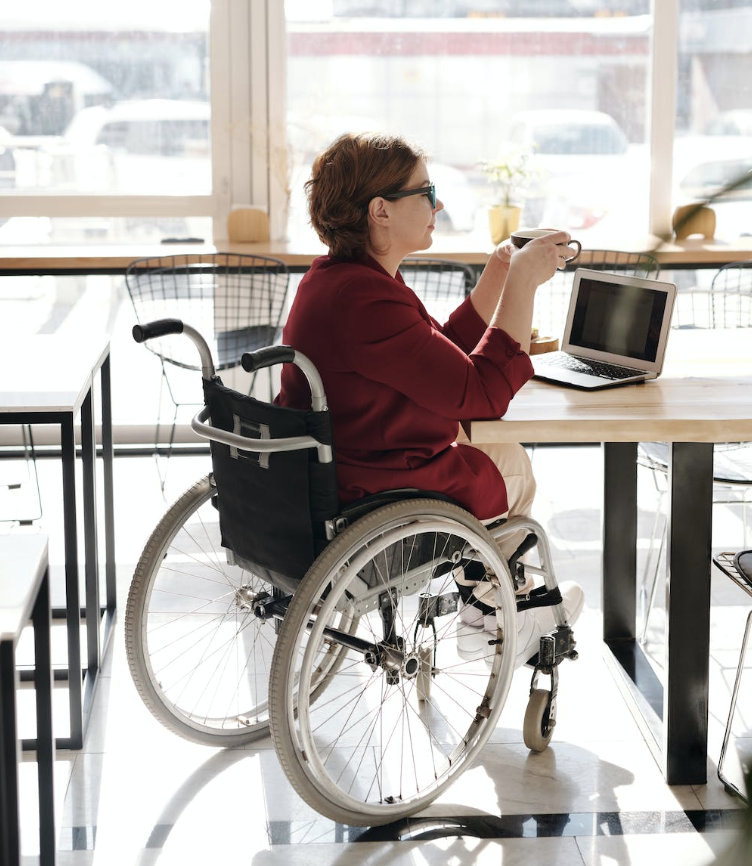International Day of Persons with Disabilities- 3rd December 2023

By Teboho Mosebo/ GICJ
Background
The human rights of persons with disabilities have over the years been the subject of much attention in the United Nations and other International organisations. To improve and honour the lives of persons with disabilities, many policies and plans have been implemented. This includes the International Year of Disabled Persons and World Programme of Action which both emphasise that persons with disabilities should have equal social and economic opportunities like other citizens. On the other hand, States have been urged to take actions to raise awareness in society about persons with disabilities by ensuring that their needs, rights and contributions are fairly met. Also, States should make sure that public education programmes reflect in all their aspects, the principle of full equality and participation [1].
History
In 1992, the International Day of Persons with Disabilities was proclaimed by the United Nations General Assembly under resolution 47/3, with its annual observance on the 3rd of December. The purpose of this Day's commemoration is to promote understanding disability issues and rally support for the rights, decency, as well as well-being of those with disabilities. It also tries to broaden awareness of gains to be procured from the combination of disabled people in every feature of life- be it economic, social, cultural or political.
Building on many decades of the UN's work in the field of disability, the Convention on the Rights of Persons with Disabilities (CRPD), adopted in 2006, has further advanced the rights and wellbeing of persons with disabilities in the implementation of the 2030 Agenda for Sustainable Development and other international development frameworks. These frameworks include the Sendai Framework for Disaster Risk Reduction, the Charter on Inclusion of Persons with Disabilities in Humanitarian Action, the New Urban Agenda, and the Addis Ababa Action Agenda, which provides a global framework for financing development [3].
The United Nations Disability Inclusion Strategy
When launching the United Nations Inclusion Strategy in June 2019, the Secretary-General stated that the UN should lead by example and raise the Organisation’s standards and performance on disability, across all pillars of work, from its headquarters to the field. The UN Disability Inclusion Strategy provides the foundation for sustainable and transformative progress on disability inclusion through all pillars of the UN. Through the Strategy, the UN system reaffirms that the full and complete realisation of the human rights of all persons withdisabilities is an inalienable, integral and indivisible part of all human rights and fundamental rights [4].
The theme for this year's International Day of Persons with Disabilities is: United in action to rescue and achieve the SDGs for, and by persons with disabilities.
The discussion is structured around five pillars of sustainable development: People, Planet, Prosperity, Peace and Partnerships.
People: The focus area can be identified as gender equality. Women and girls are extremely vulnerable to being left behind, and this is attributable to things such as the intersection of gender and disability, which worsen the hurdles and obstacles they experience. Therefore, an intersectional lens is important in this regard in order to carry out the promise that no one will be left behind.
Planet: Disabled people are excessively affected by planetary matters, more especially climate change. Also owing to their greater likelihood in poverty, such impacts were aggravated by the Corona-virus (Covid-19) pandemic. In addition, social issues such as stigma and discrimination, are supplemental factors that increase the vulnerability of persons with disabilities to the effects of climate change.
Prosperity: Financing for development is also crucial for persons with disabilities. GICJ believes that it should be a prime concern from now on, to ensure that sufficient funding is allocated to disability inclusive development, not forgetting the effective popularisation of disability in all spheres of development, including financing.
Peace: The world today continues to witness political wars and turmoil. Consequently, such conflicts disproportionately affect persons with disabilities in many ways, yet their needs and priorities are seldom talked about. It is also very concerning that their title as peacemakers and peacekeepers is often disregarded. The latest efforts to set right this situation encompass the adoption of Security Council resolution 2475, which set out that respect for human rights of persons with disabilities must be preserved in the Persons international humanitarian law. Nevertheless, more still needs to be done in this regard. Among other things that should be introduced is the provision of training to military troops to protect and identify persons with disabilities during armed conflicts.
Partnerships: It is no doubt that there have been setbacks lately in terms of improving the lives of persons with disabilities. However, the SDGs and 2030 Agenda remain crucial guideline out of the multiple crises that the world is facing. It is therefore elemental to have a resumption of the pledge that no one will be left behind. However, the success of this will absolutely require the unity of several stakeholders, including all Member States, the United Nations systems, civil society organisations and the global community of persons with disabilities. They will need to work hand in hand to help build up international unity, and that they join in correlated, targeted actions planned to reach first, those who are far behind. [5].
Geneva International Centre for Justice (GICJ) thanks the United Nations for its efforts to include persons with disabilities in all spheres of life. However, despite such efforts, persons with disabilities continue to suffer due to things like stigma, discrimination and exclusion. We call for an accessible physical environment, the presence of assistive technology, the eradication of barriers in healthcare and workplace facilities for persons with disabilities. The lives of persons with disabilities matter and the five pillars of SDGs must be effectively implemented for the benefit of disabled people.
Sources:
[4]. https://www.un.org/en/disability strategy/sgreport#:~:text=Secretary-General's%20Report,from%headquarters%20to%20the%20field.
Picture source.
https://www.pexels.com/photo/woman-in-red-blazer-sitting-on-wheelchair-4063733/
#PersonswithDisabilities #InclusionStrategy #FivePillarsOfSDGs #InternationalDay #GICJ #Geneva_International_Centre_for_Justice







